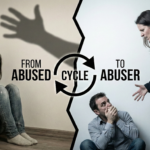This blog is meant only to define what a traumatic or life event is and not the complete picture of how these events impact our mental health. It will also not address whether your past events are resolved or unresolved. I will address over the next couple of blogs the complete picture of how past traumatic events impact your present mental health and addictions. This blog is simply to help you all understand the most basic questions about trauma and life events. Let’s look at what is a traumatic or life event in the first place, and how we can define it?
I started working with trauma back in 1990 when trauma wasn’t considered anything other than abuse or war. Post Traumatic Stress Disorder (PTSD) wasn’t established as a diagnosis until 1980 and mainly referred to war veterans. I remember having to stress the importance of unresolved abuse and the impact it had on long-term mental health issues. It was an uphill battle until we entered the 21rst century. Then suddenly, everyone started to recognize the importance of trauma and it became the new “buzz word” for therapists and accrediting agencies. However, very few people truly recognize the wide range of issues that can cause trauma, and even fewer receive the necessary clinical training to address it.
No one ever debates that abuse and war are traumatic, and they surely are two of the most devastating events for survivors to overcome. But there are many more life events that I consider traumatic. In my Resolution Focused Therapy (RFT) I describe death and dying, victim crimes, accidents, divorce, injuries, medical issues, jail, child custody, natural disasters, as traumatic events. This list in no way contains all events that can be traumatic. This is where defining trauma gets a little fuzzy. Many life events can and will be traumatic for some of us and not for others. It will depend on your upbringing, the environment you were raised in, and your mindset when the event occurs.
Your mindset at the time of an event is probably the most critical factor and one that is rarely addressed in the mental health field. It’s clear if you agree with my previous list of events then you will also agree we will all be susceptible to additional traumatic events in our lifetimes. No one avoids death and dying of loved ones or accidents. So therefore, it’s critical that all of us prepare ourselves for these future events. The healthier your mind, body, and spirit is, the more capable you will be in sustaining a balanced mind, body, and spirit through these events.
I will use my own past environmental experience to demonstrate how traumatic events impact us differently. I grew up in a neighborhood where violence wasn’t uncommon. If I witnessed a violent event today it would have less of an impact on me than say someone raised in a community where there were no violent exchanges between people and groups. It surely doesn’t mean it wouldn’t upset me, but it would not traumatize me. The same goes for all life events. They are relative to the person’s past experiences.
I’ve treated thousands of clients in my groups and very few connected the dots of past traumatic events to their current addictions or mental health issues. They thought a traumatic event was something like abuse and war and didn’t consider themselves victims of past traumas. Simply put, clients needed to learn what was a traumatic event in the first place. Those thousands of clients taught me that I needed to start with the basics in my Trauma and Addictions group and stop assuming that people understood how their pasts influence their present thoughts, feelings, actions.
To break down my RFT definition of a traumatic event into a simple question to ask yourselves is not an easy challenge but one I feel is necessary to help people understand the connection. The question is, “Does past life events continue to negatively impact your current lives?”. That impact will cause you to experience increased anxiety, depression, flashbacks, nightmares, panic attacks, helplessness, hopelessness, and more symptoms that would impact you in the present and cause you to stay fixed in the past. If you answered yes to my question, then you can address it in couple of ways. First, you can seek professional help. Second, you could further educate yourselves on how traumatic events impact people. I don’t think there is any other way to help you heal from your pasts.
I do not have the exact numbers of clients I have treated at my centers for addictions that were also suffering from a past trauma, but I can say anecdotally the numbers were many and I would say over 85% of those clients were in this group. In addition to the many that had childhood abuse or neglect in their pasts, I had clients from all walks of life including first responders, veterans, ER medical staff, medical personal, legal professionals, C-Suite executives, professional athletes, musicians and so on. The common thread was their use of substances to help them cope with the previously mentioned symptoms stemming from a past traumatic event.
I will leave you with this definition to start the conversation on what defines a traumatic event. I will also leave you with the idea that all past events are not necessarily unresolved. Many may have been dealt with and you are all the better for it. You will have to be the judge of that.
Mind, Body, Spirit…Balance!
Vinnie Strumolo, CEO, CCO, LMFT
Listen to the conversation here!






